Sitting in an expansive corner office at the 10th floor of the NNPC Towers is one of the most powerful woman in Nigeria’s public sector – Ogechukwu Olufunmilola Modie, called simply Oge by friends.
Oge doubles as both the Chief of Staff to the Honourable Minister of State, Petroleum Resources and Coordinator of the Ministry of Petroleum Resources’ Project Management Office, charged with the implementation and provision of leadership direction for the 7 Big Wins – Nigerian Petroleum Roadmap of the Ministry which focuses on short and medium term priorities to grow Nigeria’s Oil and Gas industry. Prior to this gig, she had served as the Managing Director/Chief Executive Officer of NOIPolls Limited, she was the first woman to have headed the organisation. In her current role as the Chief of Staff to the oil minister, she is the first and youngest woman to have ever held such a position in Nigeria’s history.
Undoubtedly, this role, which has held for more than three years, starting August 2015, has seen her clash numerous times with people who felt a woman’s role even in the 21st century is limited to being a housewife and to some degree of magnanimity, a secretary.
“Want anything? Tea? Water? Coffee?” Modie asked in-between hugs as she ushered this Business Editor to a conference area overlooking Abuja’s business hub, the Central Business District. She had come to the office that Friday morning solely for the interview, a day after an emotionally draining journey no one looks forward to taking.
Prior to the 43-year-old landing in Nigeria’s public and most controversial oil sector, she had worked extensively in business and financial sectors, serving as Manager, Corporate Venturing and Incubation at Heirs Alliance, a portfolio company founded by Economist Tony Elumelu At Heirs, she oversaw planning, execution and management of a one-year $4 million project covering acquisition, restructuring and management of a financial services company in the insurance sector. As the Fund Director (West Africa) at Makeda Fund Managers LLC, a $50million SME private equity start up fund focused on investing in women entrepreneurs across West Africa, she provided technical assistance to women-owned businesses; fund marketing, relationship building and managing, deal sourcing and managing investor relationships.
Leaving behind her company, Alternativ Managers set up to build capacity for SMEs and stakeholders in the sector in partnership with Ford Foundation, the Nigeria SME Agency (SMEDAN), LEAP Africa and Fate Foundation.
These years of experience have helped shaped and prepare her in dealing with many ups and downs in public office, she said, in an interview with RUTH OLUROUNBI, Per Second News Business Editor. The interview is excerpted below:
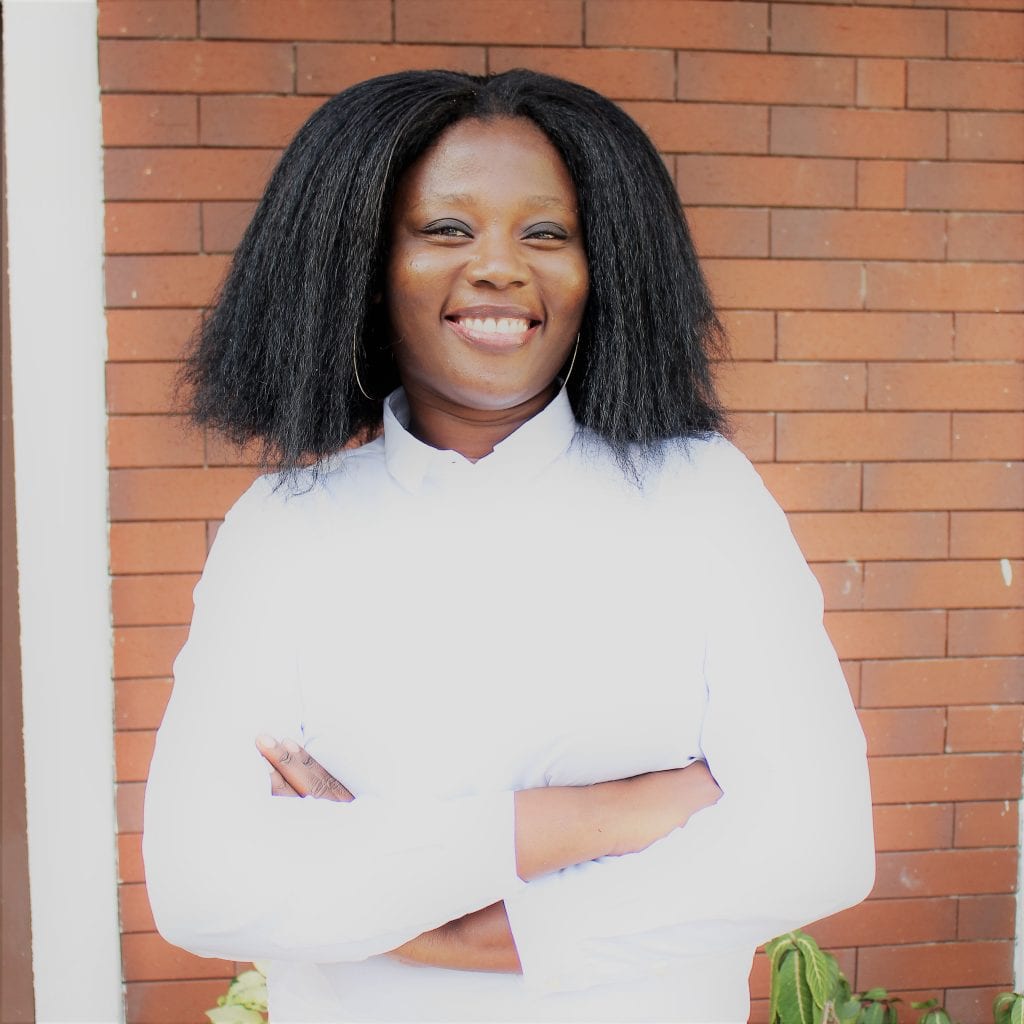
You do have an impressive portfolio, from finance to research and SMES to public service. Did you always know you will get into those places or what attracted you to them?
Okay so…I’ve always loved working with figures and numbers, and I guess that is why I entered very easily into corporate finance. And so I kind of loved that, and that continued. So it was that skill that took me into Heirs Alliance.Because what I was doing was also acquiring and expanding the financial services portfolio of TOE. And then from there, went into Makeda Fund, which was private equity. So everything was just following up. But the move to NOI was very different because I think I found that very challenging. And honestly, I had known nothing about opinion polls till I had that first chat with the then managing director. So when he was talking about it, I just saw opportunities, and I said “oh this is fantastic”, because people can then hear the voice of Nigerians, about different things. So if someone wanted to know the eating habits of Nigerians, there is a way to find out because I know as an organisation, we were doing a market study. And you just feel like all these numbers here could make sense. But beyond that, you begin to see the opportunity to understand the people behind the numbers, what their thoughts were. So that is why opinion polls. Because honestly, every other thing had been geared towards finance – corporate finance and private equity. And then, I got into opinion polling and then from there, they said come into Public Service. I said okay, there could be a reason why I am already in Abuja who knows, it could be for this reason.
What did you learn? Because coming from numbers into something as fluid as opinions, that probably must have been a jarring experience for you. So, for you, what were the things that you learned, what stood out for you?
I found out first of all, there is a common denominator there: numbers. So in private equity and in corporate finance, the numbers tell a story. In public opinion, the numbers of the people that are voicing a particular opinion, tell a story. So that was the common denominator. It was all about numbers. Now what did I learn, that ‘perception is reality’. If I take a look at you, and I think to myself that “oh Ruth, is very tough because she has a low cut,” I am going to walk away thinking that until I interact with you. So when you are talking to people about things, you start to see that their perception is what they’ve always believed. So what I realised is that opinion polling was a very important tool to change narratives. So if people are saying “oh, Nigerians do not want a particular thing” but Nigerians are saying “we are thinking otherwise because we think this might be more suitable to us”, you can actually help change the narrative to the party that believes that Nigerians are in one particular box. So I think that I learnt that. So perception is reality. Secondly, I learnt that Nigerians are very different. So let me use an example, one of the things we did. So for drug abuse. We were sitting in one place and thinking, “oh we don’t have a drug problem in Nigeria”. And I think we were one of the first that really raise this issue a couple of years ago; it was in 2013, I think, we did the poll. So we said one day, “let’s even see if we have a drug problem”. And we did a poll. And we realised that there was a huge drug problem in Nigeria, with Codeine, Marijuana, before you even get to crack and cocaine. But Codeine was so predominant in the north—because we covered the entire country. And we sat back, and when we were looking at these results, we were amazed that cough syrup, could actually become an addiction. And so we actually started a radio program, we were going to places, we were talking to people, and people were calling in and saying this is the problem, you guys didn’t even know that this was the problem.
You go to gardens in Abuja, and people are taking 15 bottles 20 bottles of Codeine and getting high, and they are between 15 year olds to 18 years olds are the ones who were staying in these gardens and all, and that shocked me because we are supposed to be conservative in Nigeria, you know, everyone goes to church, or goes to the mosque, and everyone is very religious and law abiding, and so you don’t think we have these issues. Like now, we are having the issues of depression and suicide.
So, I think for me, that changed my narrative about certain things. You start to see how culture or society has shaped the thinking of people and how you don’t even know how ingrained it is in the minds of people till you start to talk and then you now understand that you really have to change the narrative. So I think that NOI taught me a lot. It was scientific, and it was very interesting, so I learnt that also. And it was fun, to just understand opinions.
Speaking of the first thing you learnt, which is perception being the reality, how does this knowledge help you work better or maybe, in this current role?
I’ll start with one, which is the kind of narratives that is formed in the minds of Nigerians. So you are not expected as a woman, and young, to occupy such a position. And I will be honest, most times people see you here they are wondering who you slept with, who put you there, no one ever thinks you are qualified, you are the best person for that job —‘PERSON’ I used, not best man or woman, but best person—but they think it is by Òjóró or something. So, how I have had to deal with that is I don’t take it personally, do you understand? So I think that in my working with people, who think that as a woman I am not supposed to be here, is to just be myself and try not to be what I am not to anyone. So what I do is be myself, do my work, collaborate with you and cooperate with you; be stern when I need to be stern, and make you understand that the work really, is for your advancement not really at the end of the day, mine.
I think what has helped me tremendously is that because I grew up with a father who was my cheerleader, and who has basically made be believe that I can achieve anything. So I don’t think, at any point in my formative years, whether I felt for one day, that I could not achieve anything. But you come into the real world and you start to see these behaviours towards gender types and you start to wonder. And the first initial reaction is to be defensive, and try to prove that you are supposed to be here, but I have become very comfortable in my skin; I don’t have to prove to anyone, or explain myself to anyone. I just do my work as competent and as disciplined, to show I’m result-orientated and I don’t have to start trying to prove anything.
Being a chief of staff is a powerful as well as a delicate position to be in. How do you navigate this thin line?
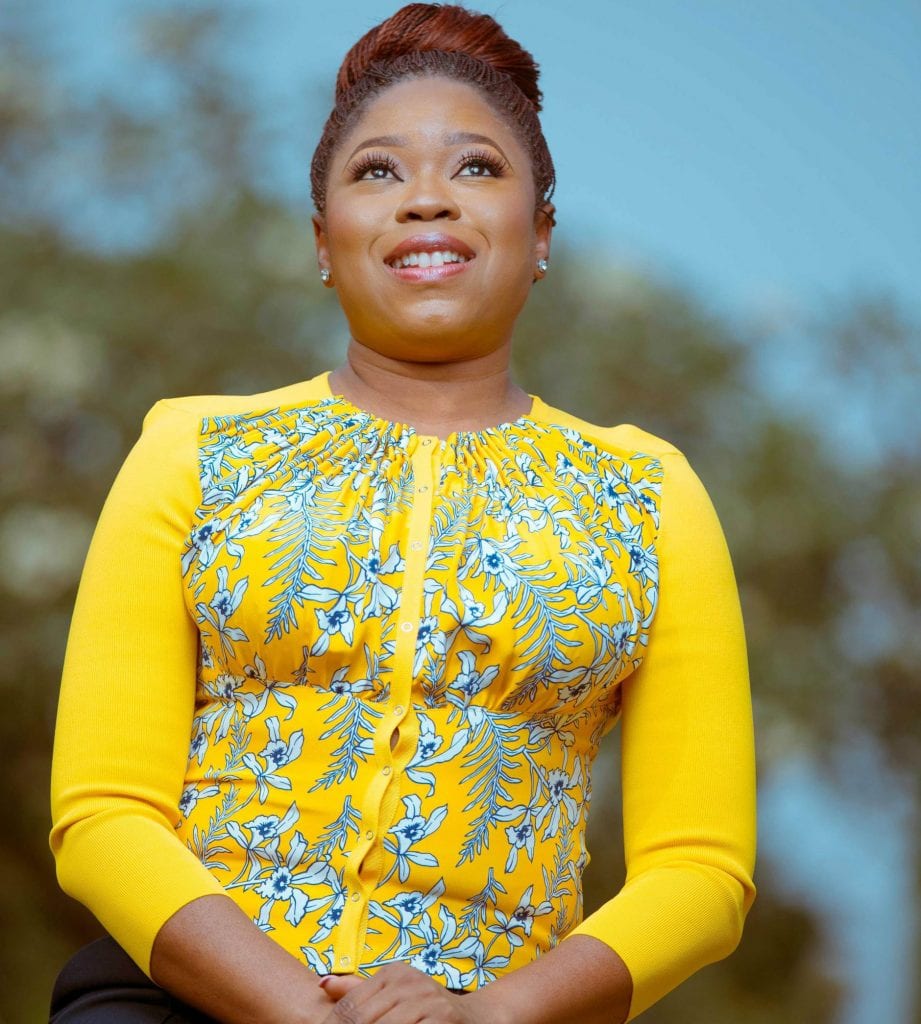
So the first and foremost is what is your principal thinking and what does your principal want to achieve, and that is what you are about. You are not about every other person in the room; you are about your Principal. You are about making him look good, making him succeed, making sure he leaves the place, what he’s done, un-scattered, there are no high-profile problems or issues. So that at the end of the day, he leaves like a legacy or something. So you are all about her or him. So if s/he says to you, okay, I want us to build a bridge between Asaba and this place, you are gonna get it done. It is a tough job because your principal may not like this person, but because of political reasons, does not know how to deal with the person, you are expected to do that. So what they will say is that “you are the one in the room who will tell the truth to him”. So you are the gatekeeper. That’s the truth.
As you know, this is about “Women in Leadership”. And so I have to ask you personally, what are your top 5 qualities as a leader?
I think one, as a leader, you have to be nurturing. You have to be able to replicate yourself in people. I think that is the most important thing. I think that is the most important thing. I think the most beautiful thing for me, is for me to sit back and for my team to do stuff and I am not there. That for me is that I have succeeded. And that’s the only way to move forward. So if I teach my team well enough, and they can take over what I am doing, then I can move to the next level. So nurturing is the most important part of leadership. You have to create and replicate yourself in people. So that means you have to make people grow. Every leader, people should grow into your role, into what you do. So that you can open up yourself for more opportunities. So that’s the way I grow. So onceUchestarts doing my job, I am not looking at my job anymore. I am now looking for the next opportunity, so I already have replaced myself. So nurturing to replace; so replacement is the next thing in leadership. You should ensure you have a successor. Someone to succeed as you go, someone succeed doesn’t mean that you are going, but if you were to take a break, you know that someone can walk in and take over. So and that comes from nurturing and laying down processes.
Humility is important because I think the team has a lot to teach. And with humility comes the teachable spirit. So if you are humble and you have people that you can learn from, as they learn from you, it promotes growth. And that is where humility should be able to bring a teachable spirit. Humility also should bring, where you can roll up your sleeves and work with your team. Like with NNPC, even till now, unless you’re told I am Chief of Staff, people will probably just hear about me but don’t know. Because—*whispering* again, as chief of staff you know you are not supposed to be out there, you need to be back door— so I’ve never used my position or role or anything, to try and armstrong anyone. No, I’ve just worked from a place where I am sitting and we are doing work together and you know, everything is working. So nurturing, having a successor, humility, and teachable spirit. And I think the one that for me is the most important is, Being Friendly. People least expect that someone in a leadership position or someone that leads a team or something, to be friendly outside of the team. And being friendly comes in terms of collaboration, I believe that…I call myself the queen of collaboration. Honestly, if I can’t do this well enough, I’ll go and look for someone to do it. I don’t kill myself. If I‘m not good enough at this, somebody else can do it better. I may know how to nurture you, to bring out the best, you know…so that you can do it a lot better than you can, but I won’t kill myself. And so, collaboration, and that comes with being friendly, getting to know people, understanding what people need, pulling everyone in and I think that for me is very key.
In the course of your career you worked with NGOs, you sit on several boards as well, what is the cause that is most important to you? That you’re most passionate about?
Okay, so there are a few very important causes to me. Women, businesses, health and now poverty. We are in a society where women are disadvantaged and that needs to change. Look at businesses for instance.Makedawas the women’s only fund that we give to women businesses and help women businesses. Just check around and see if you have women-only funds, you don’t have that. You might have business funds and for a woman to even borrow, sometimes they tell you to have your husband sign off. Women are very industrious can feed communities which makes it important to empower them. So by the time you empower women they’re empowering their family so there’s so much to go around. The ripple effect of empowering a woman is a lot and I’ve seen that in my work with them so that’s so important to me, working with women. SME is the same thing. If you have SMEs and you’re building SMEs all these things about job creation and all would go just poof in the air because everyone can now start to employ, as these people are given the adequate things that they need to run the business.
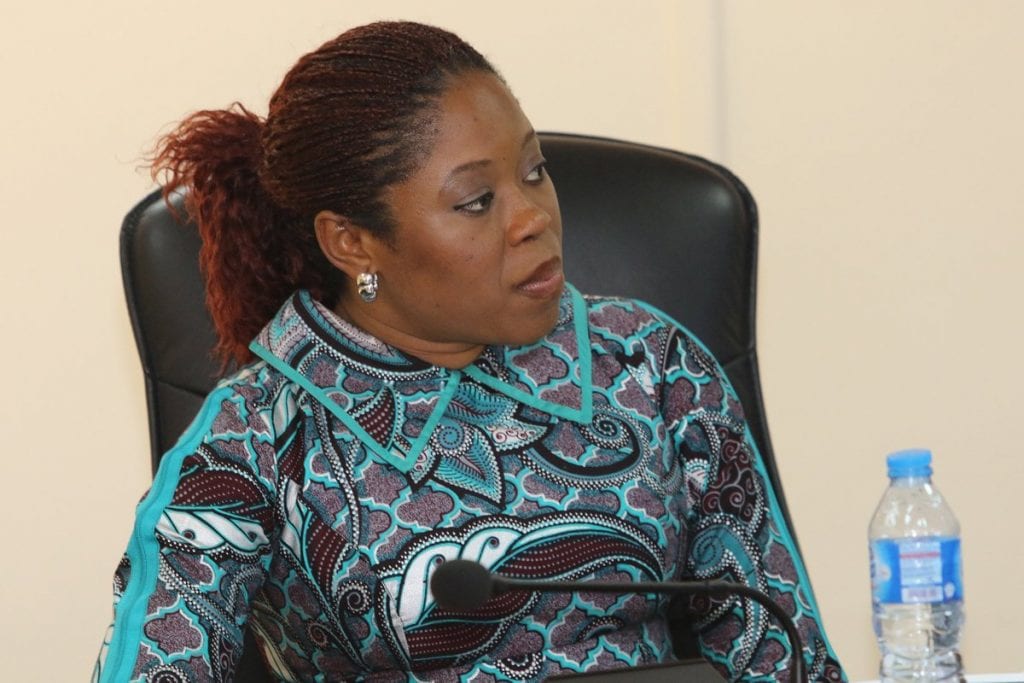
Health. Because the smallest thing can kill us, malaria you know, the fact that you don’t have access to good health facilities, the smallest things kill us. It breaks my heart that these sort of things happen in a country that should be better. And then poverty. Because the truth is that “a poor nation, really is a helpless nation”. So these are causes that I’m running through foundations that are focused on these four areas that I’ve talked about.
I have aFirst BornFoundation and I have Wellspring of Life global outreach. So those two. Wellspring of lifeis a faith inspired one, and that one deals with poverty and health. So what we do is we feed hundred families every quarter and feeding means we give them foodstuff and every Christmas also we do that. The health one is that we go to hospitals to see if we can support hospital bills, people that are being imprisoned by hospital bills. There was a child that had being in coma for about a week all they needed was N60,000 to buy the antibiotic that will reduce the swelling in the brain, so that they could actually start treating the child. They couldn’t treat him unless the brain swelling was reduced and no one could afford it. It was hit and run. But we went in there paid the money and the boy was literally given his life back to him. We had this old man that they had knocked down too. Hit and run, it was FRSC that brought him in, he needed to be treated, no money. You know, it’s just this little things. There was a woman there with a baby, she needed N3,000 before they could release her and the baby.
I mean my entire dream would be that our primary health centers are equipped enough to stop maternal deaths. People shouldn’t be having children and dying, people shouldn’t bleed to death. There so many things that should be changed but this is our own little way. So those are the two things we do under the WellSpring. For Firstborn, by January or February were building safe houses. The safe houses particularly for corp members. Corp members come into Abuja they don’t know anybody and you hear a lot of stories, they’re taking advantage of. There was a corper I think that was killed she went for a party, you know, that kind of thing. So we want to build safe houses where they’re not paying rent. We do up the house and you stay there for the year that you’re serving and leave. We are already looking for a place in Kubwa.So we want to get the place done and then we’d go to youth service camp, and show what we want to do and get them. But we need to get guarantees or guarantors maybe their parents. We are currently not building these houses, we will rent and eventually, we’ll build.
There is another one, education fund. What we found out we were doing haphazardly is paying school fees, so we’ve gone into a partnership with a school also in Kubwaand were using these areas, the suburbs…because that’s really where a lot of people need help and the school, what we’ve said to the school is put it out there there’s a free scholarship and it’s a primary and secondary school. We are ready to see at least a number of children through school, that’s the education fund. We call it Wells. So were working with the school already on that.
The third one we called it Instruments of Peace. We’re walking with two legal firms now victims of domestic abuse, particularly women we want to be able to support legal fees for them so we are speaking to a couple of law firms. One has agreed to sign a partnership agreement with us and then we now go to the civil societies that deal with it and say okay this is how much we have for that.
Looking at you you’ve had your career for about 20 years, it means that you probably started at 22 or 23 years old. So if you look back you were pretty young when you started because even with the age reduction Act, you couldn’t even have contested for any elective position at the time. Looking back now, what are you most proud of?
I don’t know, honestly. That’s the funny thing about me, I don’t look back. I just keep pushing. Every day, I keep thinking what is next. I mean I’ve written a book, I do a radio show, I want to start a YouTube (channel), I can’t afford TV yet but I want to start. So what am I most proud of?
Well I’m proud that I left Med school, I did one year of medical school and I said no I couldn’t do medicine. So I’m proud that I took that decision even though my dad didn’t want me to. My dad was the associate dean in the school of medicine so he wanted me to do medicine and I started out doing medicine in first year but I just hated hospitals, I hated the sight of blood. I just hate seeing people ill, you know, it bothers me. I just said to him, “dad I can’t do it.” I took JAMB again and I got in for economics…okay no, I got in for microbiology because he was still insisting I come to NNSUKA and do medicine I said, you know, I can’t this. So I said I’m going to do economics. My dad was very upset but then one day he came home and said okay he spoke with the Vice Chancellor. The Vice Chancellor said that Economics was very good, he should let me do Economics. And I mean, that has panned out today better than doing the medicine. So I think I’m really proud that even at that very early age, I was 16, I was able to tell my dad no I don’t want to do Medicine. I could really stand for what I wanted and I think that really changed the course of how things went. I don’t know, I could’ve been a perfect doctor but I don’t know if would have enjoyed what I was doing.
So for your happiness is important?
Yes, very important in what you’re doing, passion for what you are doing. The joy of knowing you are influencing people, you are touching lives.
This actually leads to the second to the next question in terms of influence. Who has been or what has been the biggest influence in your life as a person and as a person in positions of authority, leadership positions? Who or what has been the biggest influence for you, would you say?
So the biggest influence has been God, hands down. I gave my life when I was 8 years old. So I haven’t really known anything outside of God and me for that long so everything I do, I get him to give his nod so every step I take, so I always believe that my life is the story written by God. Because I mean, coming to Abuja people were like I was crazy because I just packed up two bags and left Lagos and came to Abuja in 2012. So yes, the single most important influence has been the influence of having a relationship with God in my life. So he is responsible for all my achievements, my success because I have just followed through with what he has asked me to do. Second, in terms of a person has been my dad. My dad has always been the one. Everything that I am in character, in personality is my dad. He has always been the one to say to me, this is what is the most important. He even introduced us to the faith. He always wanted to be a pastor, a priest actually a Reverend father. But he went to school. Anyway. So he has always been there, and even though we lost him about 6 years ago, what he taught me in the years that he was with us, has remained. If I needed to do something and I’m thinking to myself, and say “what would dad think of me” and…you know,…that alone.
Third, who do I most admire when I look at governance? As a woman, Nigerian, I actually admire Ngozi Okonjwo Iwaela. She is very focused in what she does, she is very intelligent. Another person is Oby Ezekwseli. Oby is fierce; that’s why I like Aunty Oby. You may not like her, and so it rubs off wrongly on people. Why? Again she is a woman. “Women should be seen, not heard.” But she is there telling you this is wrong. And that comes from boldness. Again, I think her major influence is God and her father. Because you see her talk about her father, what her father taught her. So I think women that are bold are typically women who have a very close relationship with their fathers.
NOI was also very close to her father. And Aunty Oby: Two very strong women that I respect a lot. When I think of any man I have two bosses that shaped me. They taught me integrity and hard work. They’ve taught me hard work, tenacity. They taught me integrity, doing things the right way not giving up. They were wonderful bosses. The first six years of my life they shaped it when I was in work. They shaped me into what I am today. Knowing how to stand for the truth and integrity. That’s about it
Earlier on, you said something about your dad, growing up with a father that believes in you. I like for you to tell me a story, a childhood story that you carry with you till today.
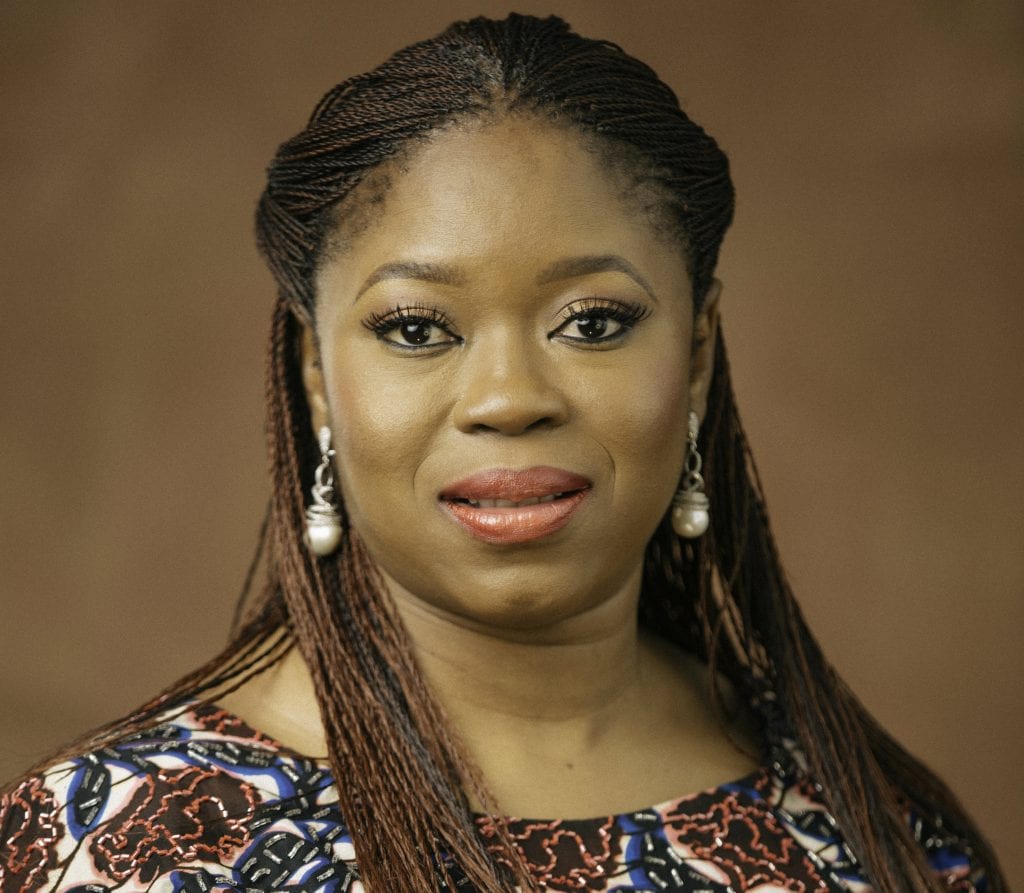
Well, there is so many! (laughs)
So what did dad do? So many things, maybe from secondary school. I’m the last out of five and my siblings are much older than me so I was the one left at home a lot with my parents. So my dad taught me how to cook, so I’ll share that. My mum was a very strong woman. Labour leader, chief of administrator, very strong in her career. Very ambitious. My dad too was a lecturer. But I remember in form 1 or form 2, it was my dad that taught me how to cook Egusisoup. Maybe he came back from work, and maybe he didn’t want to take the soup that I had warmed or something so I think he now said lets go and learn. So I remember everything, him teaching me how to cook. He really taught me how to cook my first meal. My dad was a really good cook. So I won’t forget that. Because typically it’s supposed to be mothers teaching…*laughs*…but my dad taught me how to cook. So yes, I cooked my first soup. Yeah, yeah.
But amongst other things, he taught me humility. My dad can never have you announce yourself. He always used to say “this world was temptation, you know, “or gallivanting”…those are just words he just used to use…don’t be gallivanting…you know, *laughs* if you just go doing anything, he’ll pull you back in. He taught us how to respect individuals. It was just a lot that came from Dad. He was an only child so…












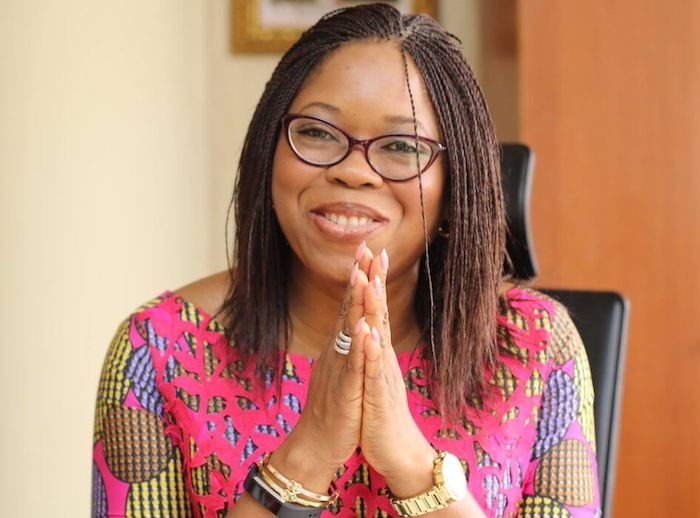

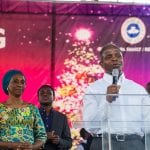
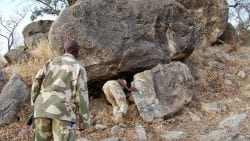
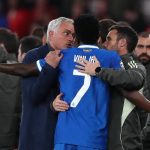




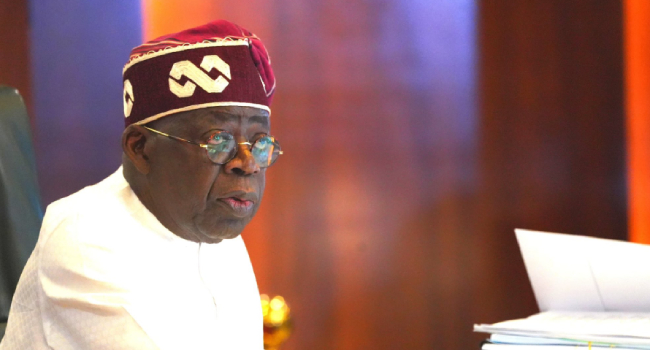
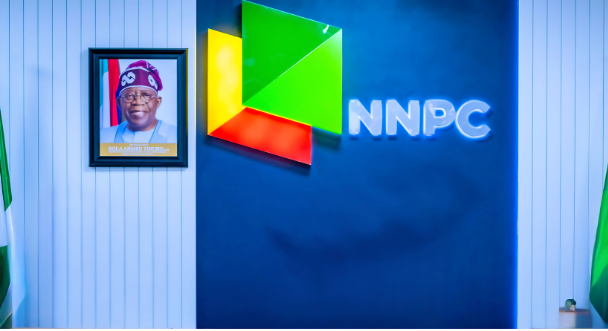

Leave a comment